While the automatic muting of aggressive advertising in web browsers is common, the side effects of overzealous ad blockers is damage to core website functionality and removal of genuine content.
As a “blunt instrument”, widely used software like Adblock Plus hides YouTube videos, Facebook ads and website banners, yet causes entire sections of websites to break, including (but not limited to) airline check in pages, order tracking, social sharing and online banking.
It can also affect time sensitive auction sites in which purchases are plagued with webpage errors at the critical moment of bid submission.
The obvious solution is to turn off the ad block temporarily and reload the webpage, but it’s not always obvious which parts of a site are missing.
Does Muting Ads Result in Web Censorship?
HTML, CSS and javascript can be mistakenly targeted because there’s no real distinction between advertising and content.
A study by technology firm Oriel insists that blocking such elements is censorship because it is “interfering, changing and potentially censoring web content”.
Oriel produced some slides presenting their case:
Interestingly, Oriel create advertising technology so they most likely have something to gain by spearheading the fight. Your critical faculties may be telling you there is propaganda at work here, and you might be right.
For this reason I ran a quick test to see how my own websites fared with browser blockers.
The investigation was by no means exhaustive but the results still surprised me.
Broken Website Example
I installed Adblock Plus on a local website I run that earns revenue using Google Adsense display ads.
As expected, the ads were blocked, but more worrying was the occasional disappearance of embedded Facebook and Twitter widgets.
Image Banner Removed by Adblock Plus
Slightly perturbed, I next visited Small Biz Geek where I was dismayed to discover the JPG banner in the primary header advertising my services was blocked!
Frustrating!
We’re talking about a modest 728 x 90 pixel image not typically considered “annoying”, “obtrusive” or “damaging to user experience” yet it is rendered invisible under the zero tolerance policy of the ad blocking software I’d installed.
Here’s what the header would look like under normal circumstances:
Here’s the header with ad blocking enabled:
Other Content Blocked
Embedded tweets also get disabled, showing plain text in place of the tweet.
The HTML container for the tweet is rendered with fallback CSS normally used for a blockquote.
The embedded tweet should look like this, with a video inside the tweet:
These heavy ad blockers have demonstrated that websites can be disrupted, edited, and turned into an inadvertently misleading webpage to lesser or greater degrees.
It seems the use of an adblocker is cutting off the nose to spite the face.
Having said that, some websites (online news articles) keep crashing because of too many ads and in those circumstances, I am forced to enable the ad blocker just to get the page loaded so I can read the content.
What Content Was Not Blocked?
During my testing, the embedded Google calendars on Small Biz Geek were not affected by the ad block software.
Embedded YouTube video and Soundcloud audio (using iframes) also escaped unchanged.
The Fractured Digital Advertising Economy
Assuming website structure, aesthetic and core content is left mostly undisturbed, what are the farther reaching consequences of muting digital adverts?
As much as I dislike overbearing begging pitches, ad blockers are stopping the flow of cash. Part of the online economy is being stifled.
There’s an exception to the above in circumstances where a webmaster or brand is pushing deliberately misleading spam in the absence of little or no original content.
Indeed, some content consumers are never going to buy products/services based on contextual ads. Some of us become aware of a brand, product or service by other means and make our own way to the checkout, thus skipping the part where an ad publisher earns a referral fee.
Adsense Admeggedon
Google Adsense was launched in 2003, enabling webmasters to copy and paste a chunk of javascript into their websites.
Almost immediately, a content creator could earn from cost per click leads generated by automatically served contextually relevant ads.
Many Adsense publishers have earned a good living off the back of Google Adsense although click through rates have dropped across the board in the last 10 years.
Amazon Affiliates operating in a saturated market tell a similar story.
Because many users have become “ad blind”, you could argue that crudely switching off webpage commerce is compounding the issue of publishers not being fairly compensated.
The widely held concern among traditional journalists and indie bloggers is that the incentive for content to be created in the first place is diminishing if it’s killed in the womb.
We have a web advertising race to the bottom because – ostensibly – there’s no other business model for making money off content.
Online Newspapers Not Loading
Let’s take another example. Online newspaper publishing is a death-defying balancing act between paywall subscription or free to view on the condition that ads generate cash.
You may argue that news sites just need to adopt different business models, which seems to be the case in this BBC Bottom Line podcast about monetising journalism.
Millennials born into the social media world might never have purchased a real newspaper and instead take their news sources for granted as just another freebie surfaced in their Facebook feed.
I haven’t purchased an actual newspaper in years (unless it’s my local Ilkeston Life) and so tend to read digital versions of the broadsheet press.
You’ve probably experienced online journalism where webpages fail to load at least 50% of the time from a mobile device, and even if they do display in their entirety – ads included – the site crashes before you finish reading the first paragraph.
There have been situations where I’ve not been able to get a news article to load at all on my iPad. I’ve spent up to 15 minutes repeatedly loading a page only for the content to bounce, stick and crash the browser.
The autoplay video ads, pop up dominators, and aggressive sales pitches gobble bandwidth too.
The War on Ads and Slow Websites
Google have already introduced Accelerated Mobile Pages which, for now, have dispensed with any and all advertising in an ambitious bid to give users what they want – fast loading pages without interruptions.
Headers and sidebars are removed by the (optional) AMP versions of mobile sites as well as redesigning website structure and aesthetics.
Pages are instead rendered using Google server resources assets and a stripped down design.
Here’s another one: did you know ad blocking is creeping into browsers as a native feature?
Yep – Opera is innovating with their own baked in bullshit detector to auto block pesky solicitations. However, as of August 2016, Opera have just a 2% share of the global browser market.
In 2015 mobile ad blockers rose by 90% and according to reports, Apple’s iOS9 now has the ability for users to create their own ad blocking extensions.
With big names cementing their position on what might become a full fledged crusade against the ad industry it’s prudent to ask how this will gel with advances in web development.
Do coders need to beta test their work under all browsers AND ad blockers? It’s tricky.
Concerns for the British Economy
Some ad blocker companies offer paid white lists so that publishers can supposedly buy visibility for their commercial messages. This is little more than rackateering.
The general issue of ad blocking is so serious, UK culture secretary John Whittingdale has indicated government legislation could be on the horizon following concerns of the impact on the British economy.
Whittingdale has held meetings with trade bodies, publishers/portals, ad-blockers, mobile operators, non-governmental organisations and consumer groups.
Analysis
If you want to keep your ad blocker, by all means, do so. Just switch it off or pause it if you need to make financial transactions.
You can whitelist certain domains inside ad blocker settings if there’s a particular site you’re willing to support or give the benefit of the doubt.
Whitelisting within the settings is nothing to do with the digital publisher racket I mentioned earlier. I’m referring to the configuration of the blocker and the ability to self-regulate what your browser does and does not display.
What do you think to the issues surrounding digital advertising and how we consume content?
Overbearing adverts are annoying. These pushy proposals are the digital equivalent of a cocked and loaded salesperson making a beeline for an unsuspecting customer entering a store.
But are the ad blockers blocking more than the ads?

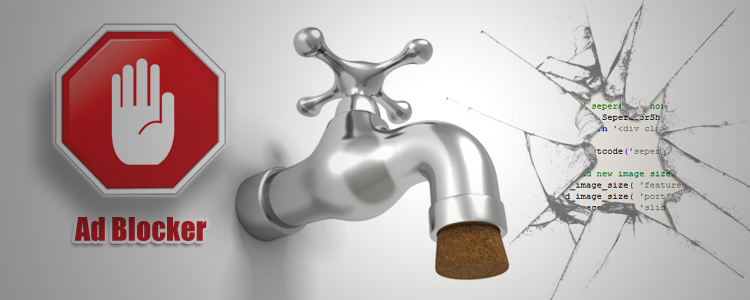
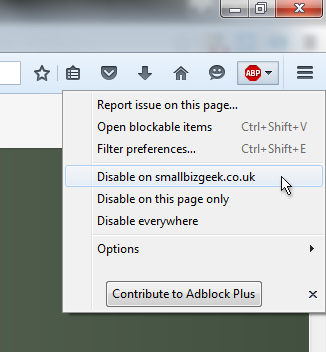
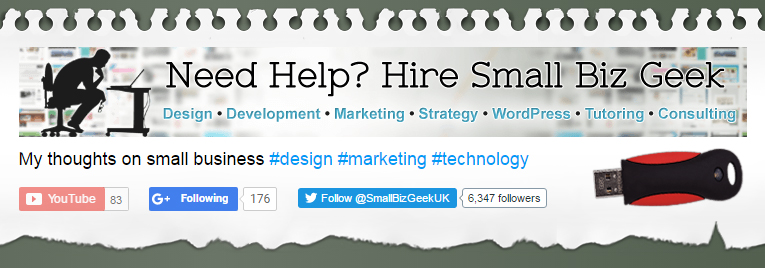
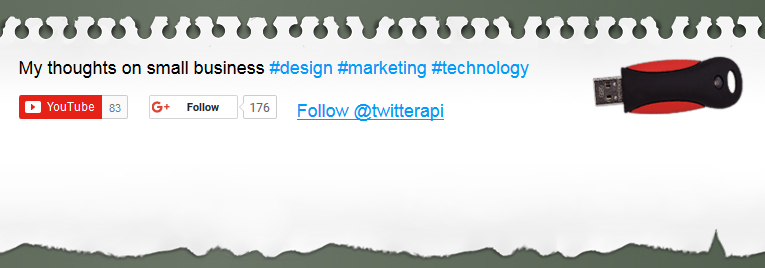


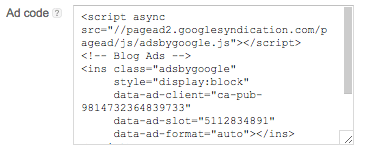
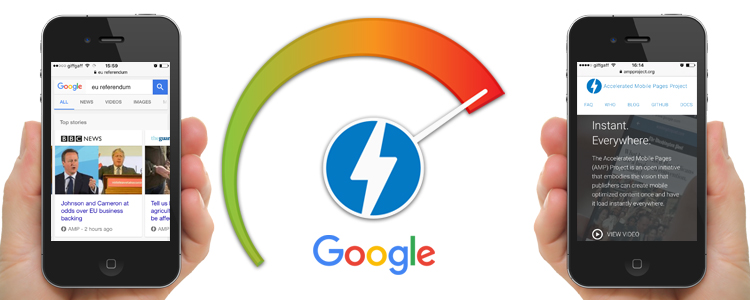

Hi Darren,
I do agree with you on the fact of killing website functionality due to Adblock. But, Its totally up to user whether he wishes to see Ads or not. I generally like to get the website Ads hide as they make user unable to browse websites with ease.
But the points picked up by you are also right. This is what technology delivers: the more you use them the more you become puzzle.
Thanks for bringing these points in light among your readers. 🙂
I use Adblockers too Mat, However, there’s a TV catchup demand service I use (Channel 4 in the UK) which refuses to play any content if it detects an ad blocker.
That tactic is new to me but I can see they’re trying to protect their advertisers and prop up the economy of online ads. A lot of us are trying to have their cake and eat it.
Well how about this! Adblock Plus launching platform to sell ‘acceptable’ ads
WOW, I mean seriously!!
Nice ideas, mate, Thanks for sharing for ad blocker issues!!
Can’t agree more with this, Darren. I have come across offers from adblockers who are running ads on their apps when a user visits a site..so basically, they are doing what publishers were doing and making money out of our content.
The smaller publishers are being squeezed. It’s not inconceivable that the internet will distill down to a few large brands that own everything and monetise by some non-ad revenue model. Imagine Google, Amazon, Facebook and Apple ruling the net. Display ads are on the way out I think.
While ads are annoying, I adblock by default because of security concerns.
I whitelist 4chan because the site owner actually knows what they are doing, there are no pop ups there, only banner ads with links the advertised sites – so I keep it even though some of the pictures in the ads turns me off my lunch — and that’s the ads on the blue boards (work safe) boards, they have pictures of disgusting diseased parts and links of miracle cure, or someone who looks like they are heavy drug user or had a deformity with “You won’t believe what she looks like now!”.
I will never whitelist newspapers because they just hand over their webpages to whoever pays them money, it’s too dangerous. I’m completely unmoved by messages asking me to whitelist them or to turn off my adblock — if there is an overlay – I just won’t visit the site, I will go so far as to go and remove ads and recs as I consider that site now inaccessible.
https://en.wikipedia.org/wiki/Malvertising
An appeal for me to whitelist a site will only work if it’s accompanied by a promise that the site is taking care not to malware the readers and some explanation of what they are doing.
I actually read flyers after all, ads are okay as long as they don’t malware me, or block the functionality of the site (stop those hover ads!) I think the best ads are banner ads between article and comment, just an interesting picture that grabs my attention. Banners are better than pop-ups, pop-ups are annoyances that the viewer reacts to by closing window right away to get to content, so what if you got us to click on it? If I have to click on it to close it I would often just close the entire webpage and not go back, it’s too risky. Banners will be around even after I finished reading the article and decide to check it out. Why do classifieds in newspapers work even if it’s not beside the article? People are curious.
Thanks, Darren! I didn’t know before but you make me clear such a nice way through your comprehensive post “Browser Ad Blockers”.